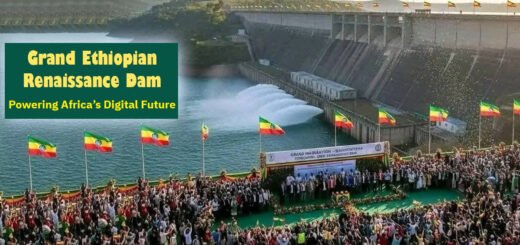Digital Literacy for All: Empowering Africans with Essential Skills
In today’s rapidly evolving digital world, digital literacy has become a critical skill set for individuals and societies alike. From accessing information to engaging in online commerce, digital literacy is essential for full participation in the digital age. However, in Africa, digital literacy rates remain low, limiting the potential of individuals and hindering overall socioeconomic development. To address this challenge, concerted efforts are needed to promote digital literacy for all Africans, empowering them with the essential skills needed to thrive in the digital era.
The Importance of Digital Literacy
Digital literacy is not only important for personal use but also for employment and entrepreneurship opportunities, especially in the context of initiatives like the African Continental Free Trade Area (AfCFTA). AfCFTA aims to create a single market for goods and services in Africa, and digital literacy will be crucial for individuals and businesses to fully participate and benefit from this historic trade agreement. Digital literacy will enable entrepreneurs to leverage online platforms and e-commerce, enhancing market access and facilitating digital trade, which are key components of AfCFTA’s vision to transform Africa’s socioeconomic development.
Challenges to Digital Literacy in Africa
Despite the increasing importance of digital literacy, many Africans still lack access to digital devices and reliable internet connectivity. According to a report by the International Telecommunication Union, only 28% of Africans had access to the internet in 2021, compared to a global average of 53%. This digital divide is a significant barrier to achieving widespread digital literacy in Africa.
Promoting Digital Literacy for All
To promote digital literacy for all Africans, a multifaceted approach is needed, involving governments, civil society, the private sector, and international partners. This approach should focus on expanding access to digital devices and reliable internet connectivity, integrating digital literacy into formal education curricula, raising public awareness about the importance of digital literacy, and fostering partnerships and collaboration among stakeholders. By empowering all Africans with essential digital skills, we can unlock new opportunities for individuals, drive economic growth, and build a more inclusive and sustainable future for the continent.
References:
- International Telecommunication Union (ITU) (2021). Measuring digital development: Facts and figures 2021. Retrieved from https://www.itu.int/en/ITU-D/Statistics/Pages/facts/default.aspx
- African Continental Free Trade Area (AfCFTA). https://au-afcfta.org/
Related posts: Reflection on the Digital Transformation Strategy for Africa (2020-2030)




[…] post: Leapfrogging the Future: How AI can Transform Africa | AI Capacity Building in Africa | Unlocking Africa’s Potential…
[…] ABNT. (2024). The Impact of Artificial Intelligence on African Economies. Retrieved from https://abnt.com/?p=37 […]
[…] Related posts: Bridging the digital divide for inclusive & sustainable developmentReflection on the Digital Transformation Strategy for Africa (2020-2030)…
[…] posts: Bridging the digital divide for inclusive & sustainable developmentReflection on the Digital Transformation Strategy for Africa […]
[…] Related posts: Reflection on the Digital Transformation Strategy for Africa (2020-2030) […]